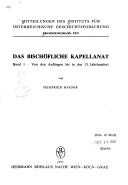| Listing 1 - 10 of 26 | << page >> |
Sort by
|
Book
ISBN: 2200619375 Year: 2017 Publisher: Paris (21, rue du Montparnasse 75283) : Armand Colin,
Abstract | Keywords | Export | Availability | Bookmark
 Loading...
Loading...Choose an application
- Reference Manager
- EndNote
- RefWorks (Direct export to RefWorks)
La période hellénistique commence avec l'expansion considérable du monde grec lors de la conquête de l'Empire perse par Alexandre le Grand : ses frontières s'étendent désormais jusqu'à l'Égypte et aux contreforts de l'Himalaya, et elle s'achève lorsque Rome s'empare de l'Orient méditerranéen.Cette époque charnière entre l'histoire grecque et l'histoire romaine a longtemps été considérée comme une période de déclin après la période classique, mais l'historiographie récente a complètement renouvelé les approches en s'appuyant notamment sur l'archéologie et sur l'étude des transferts culturels. Elle met l'accent désormais sur la créativité et la vitalité des habitants du monde hellénistique, qu'ils soient grecs, juifs, égyptiens ou orientaux.L'histoire de cette période est traversée aussi par de vifs débats historiographiques qui rejoignent souvent l'actualité de notre époque, comme la question des identités politiques et culturelles ou la réflexion sur la notion de « déclin ».
Hellenism. --- Greece --- History 281-146 B.C. --- History Macedonian Hegemony, 323-281 B.C.
Book
ISBN: 3700135033 9783700135036 Year: 2005 Volume: 724. Bd. Publisher: Wien Österreichische Akademie der Wissenschaften
Abstract | Keywords | Export | Availability | Bookmark
 Loading...
Loading...Choose an application
- Reference Manager
- EndNote
- RefWorks (Direct export to RefWorks)
Macedonia --- Macédoine --- History --- Histoire --- Perdiccas, --- Greece --- Macédoine --- Perdikkas, --- Perdiccas, - -320 BC --- Greece - History - Macedonian Hegemony, 323-281 B.C --- Macedonia - History - Diadochi, 323-276 BC
Book
ISBN: 3406320686 9783406320682 Year: 1987 Publisher: München: Beck,
Abstract | Keywords | Export | Availability | Bookmark
 Loading...
Loading...Choose an application
- Reference Manager
- EndNote
- RefWorks (Direct export to RefWorks)
Greece --- Macedonia --- History --- -Macedon --- -History --- -Greece --- Greece - History - Macedonian Hegemony, 323-281 B.C. --- Macedonia - History - Diadochi, 323-276 B.C.
Book
ISBN: 9783515120203 3515120203 3515120270 9783515120272 Year: 2018 Publisher: Stuttgart: Steiner,
Abstract | Keywords | Export | Availability | Bookmark
 Loading...
Loading...Choose an application
- Reference Manager
- EndNote
- RefWorks (Direct export to RefWorks)
After having been for decades the province of a relatively small group of scholars, the Hellenistic polis has become central to the research agenda of Ancient historians more broadly. This development can be traced from the early nineties of the last century, and has picked up pace in a sustained fashion at the turn of the millennium. Recent research has started approaching the Greek polis of the centuries between Alexander and Cleopatra as a specific historical phenomenon, striving to define its most peculiar aspects from as many angles as possible, and to point to new avenues of interpretation that might contribute to recognizing its historical role. 0In this general framework, this volume attempts to explore new lines of thought, to question established ways of reading the evidence, and to take stock of recent developments. The contributors do not subscribe to any particular shared approach; on the contrary, their approaches and questions stem from many different scholarly traditions and methodologies. Rather than seeking to achieve a complete coverage, the volume provides a selection of current research agendas, in many cases offering glimpses of ongoing projects.
City-states --- History --- Greece --- City-states. --- 323-281 B.C. --- Greece. --- E-books --- City-states - Greece - History - Congresses --- Greece - History - Macedonian Hegemony, 323-281 B.C. - Congresses
Book
ISBN: 9789004257986 9789004257993 9004257993 1299870597 9781299870598 9004257985 Year: 2013 Volume: 363 Publisher: Leiden ;Boston Brill
Abstract | Keywords | Export | Availability | Bookmark
 Loading...
Loading...Choose an application
- Reference Manager
- EndNote
- RefWorks (Direct export to RefWorks)
There is a long tradition in classical scholarship of reducing the Hellenistic period to the spreading of Greek language and culture far beyond the borders of the Mediterranean. More than anything else this perception has hindered an appreciation of the manifold consequences triggered by the creation of new spaces of connectivity linking different cultures and societies in parts of Europe, Asia and Africa. In adopting a new approach this volume explores the effects of the continuous adaptations of ideas and practices to new contexts of meaning on the social imaginaries of the parties participating in these intercultural encounters. The essays show that the seemingly static end-products of the interaction between Greek and non-Greek groups, such as texts, images, and objects, were embedded in long-term discourses, and thus subject to continuously shifting processes.
Greece --- Grèce --- History --- Histoire --- HISTORY --- Ancient --- Macedonian Expansion (Greece : 359-323 B.C.). --- 359-281 B.C. --- Greece. --- Grèce --- Macedonia --- Greece - History - Macedonian expansion, 359-323 B.C. --- Greece - History - Macedonian Hegemony, 323-281 B.C.

ISBN: 3406480098 9783406480096 Year: 2003 Volume: 2309 Publisher: München: Beck,
Abstract | Keywords | Export | Availability | Bookmark
 Loading...
Loading...Choose an application
- Reference Manager
- EndNote
- RefWorks (Direct export to RefWorks)
Hellenism --- Hellénisme --- Greece --- Grèce --- History --- Histoire --- Seleucids --- Egypt --- Syria --- Hellénisme --- Grèce --- Greece - History - Macedonian Hegemony, 323-281 B.C. --- Egypt - History - Greco-Roman period, 332 B.C.-640 A.D. --- Syria - History - 333 B.C.-634 A.D.

ISBN: 0709943636 Year: 1988 Volume: vol *2 Publisher: London New York Croom Helm
Abstract | Keywords | Export | Availability | Bookmark
 Loading...
Loading...Choose an application
- Reference Manager
- EndNote
- RefWorks (Direct export to RefWorks)
Greece --- History --- Macedonian Expansion, 359-323 B.C. --- Macedonian Hegemony, 323-281 B.C. --- Statesmen --- Athens (Greece) --- Biography --- Generals --- Phocion, d. 318 B.C. --- Greece - History - Macedonian Expansion, 359-323 B.C. --- Greece - History - Macedonian Hegemony, 323-281 B.C. --- Statesmen - Greece - Athens - Biography. --- Generals - Greece - Athens - Biography.
Book
ISBN: 9788834315781 8834315782 Year: 2008 Publisher: Milano: Vita e pensiero,
Abstract | Keywords | Export | Availability | Bookmark
 Loading...
Loading...Choose an application
- Reference Manager
- EndNote
- RefWorks (Direct export to RefWorks)
Diodorus, --- Greece --- Macedonia --- History --- 880 --- 930 --- Literature Greek and Classical literatures --- History Ancient world --- Diodorus, - Siculus. - Bibliotheca historica. - Book 18 --- Greece - History - Macedonian Hegemony, 323-281 B.C. --- Macedonia - History - Diadochi, 323-276 B.C. --- Diodore de sicile (0090?-0020? av. j.-c.). bibliothèque historique --- Grèce --- Macédoine --- 323-281 av. j.c. (domination macédonienne) --- 323-276 av. j.-c. (diadoques)

ISBN: 9780472111091 0472111094 Year: 2006 Publisher: Ann Arbor: University of Michigan press,
Abstract | Keywords | Export | Availability | Bookmark
 Loading...
Loading...Choose an application
- Reference Manager
- EndNote
- RefWorks (Direct export to RefWorks)
Alexander the Great and his main successors changed the Mediterranean World in the course of two centuries, their realms extending from the Adriatic to the Indus and from the Black Sea to Ethiopia. "Hellenistic Monarchies" is a collection of essays on Alexander the Great and the powerful rulers that followed him, including the Ptolemies of Egypt, the Seleucids of Asia, the Antigonids of Macedonia and Greece, and the Attalids of Pergamum. Habicht presents his latest research on the reign of these distinct monarchies, focusing particularly on their relations with each other, and their interactions with the Greek cities inside their domain. Making use of the latest epigraphical evidence from newly found inscriptions, this collection will be of great interest to those in the fields of post-classical Greek history and society, as well as those investigating the Greek and Macedonian interactions with Asia, Egypt, and their Jewish and Palestinian neighbors.
Hellenism. --- Hellénisme --- Mediterranean Region --- Greece --- Méditerranée, Région de la --- Grèce --- History --- Histoire --- Hellenism --- Hellénisme --- Méditerranée, Région de la --- Grèce --- Macedonia --- Mediterranean Region - History - To 476 --- Greece - History - Macedonian Hegemony, 323-281 B.C. --- Greece - History - 281-146 B.C.

ISBN: 3205084128 9783205084129 Year: 1977 Volume: 25 Publisher: Wien: Böhlau,
Abstract | Keywords | Export | Availability | Bookmark
 Loading...
Loading...Choose an application
- Reference Manager
- EndNote
- RefWorks (Direct export to RefWorks)
Greece --- History --- Chaplains, Bishops' --- -262.3 --- Bishops' chaplains --- Chaplains, Episcopal --- Chaplains --- Bishops --- Catholic Church --- -History --- Aartsbisdom. Bisdom. Diocees. Patriarchaat. Exarchaat. Primaatschap --- -Clergy --- History. --- 262.3 Aartsbisdom. Bisdom. Diocees. Patriarchaat. Exarchaat. Primaatschap --- Greece - History - Macedonian Hegemony, 323-281 B.C --- Greece - History - 281-146 BC --- -Catholic Church
| Listing 1 - 10 of 26 | << page >> |
Sort by
|

 Search
Search Feedback
Feedback About UniCat
About UniCat  Help
Help News
News